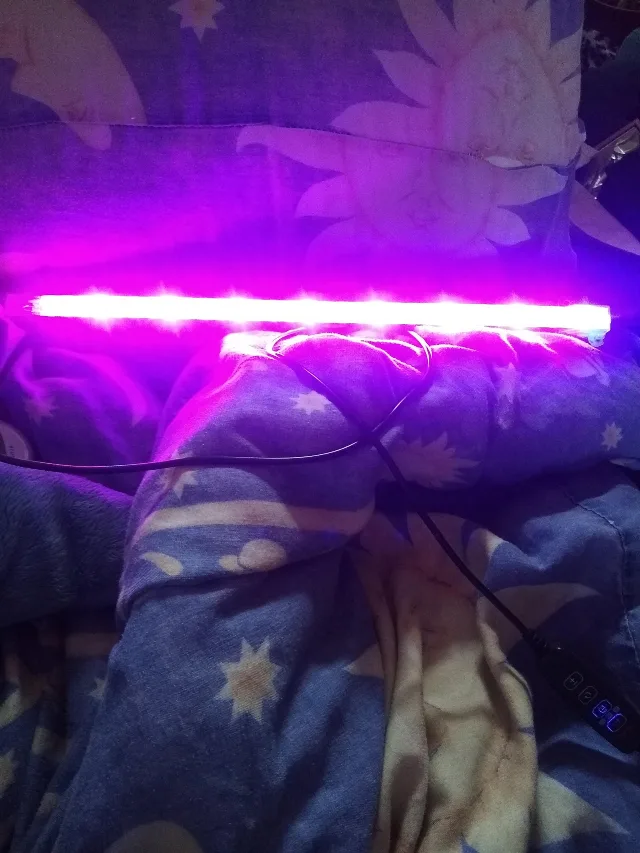Budgies need exposure to UV light, including both UVA and UVB, sunlight, and full-spectrum lighting. UV light aids in Vitamin D synthesis, essential for calcium absorption, and enhances their vision. Sunlight helps regulate their biological clock and mood. Full-spectrum lighting provides both visible light and UV light, mimicking natural sunlight.
Have you ever observed the colorful plumage of a budgie and wondered how they maintain such vibrancy?
When I was a budgie owner myself, I had the same queries that you might have right now.
How much sunlight does a budgie need? Is UV light essential? Should I consider getting a full spectrum light? Beyond their natural genetics, a large part of this display owes to exposure to UV light, UVA, UVB, sunlight, and full spectrum lighting.
I’ve seen firsthand how the right lighting can influence their health and wellbeing.
Let’s dig deeper into this matter.
Budgies And UV Lights
Do Budgies Need UV Light? +Why Do Budgies Need UV Light?
The simple answer to the question, “Do budgies need UV light?” is yes.
Like many bird species, budgies have unique physiological attributes that enable them to make use of UV light in ways that other animals, including humans, cannot.
Budgies have a specialized type of cells in their retinas called ‘double cones’ that are sensitive to UV light.
These cells allow budgies to perceive UV light, which in turn enhances their visual perception of the world.
UV light impacts a budgie’s vision.
Unlike humans, budgies can see a broader spectrum of light, which includes UV light.
This ability helps them perceive their environment more vividly, and it’s thought to play a role in their mate selection and social interaction.
It can even influence their dietary choices.
For example, many fruits and berries reflect UV light, which makes them more visible and appealing to birds capable of UV vision, such as budgies.
Another significant aspect of UV light for budgies is its role in Vitamin D synthesis. Vitamin D, specifically Vitamin D3, is crucial for budgies’ health as it helps in the absorption of calcium and phosphorus, nutrients that are essential for good bone health and egg production in female budgies.
UVB light, a component of UV light, triggers the production of Vitamin D in the bird’s skin.
Furthermore, exposure to UV light can also have behavioral benefits for budgies.
It’s observed that budgies kept under appropriate UV lighting display more natural behaviors and are generally more active and happier.
So, while your budgie might survive without UV light, it will not thrive to its maximum potential.
The lack of UV light might result in health issues over time, including brittle bones and beaks due to insufficient Vitamin D, and psychological stress due to impaired vision.
As a responsible budgie owner, it’s essential to provide them with a source of UV light to ensure they live a healthy and contented life.
How Much UV Light Do Budgies Need?
The answer varies, but generally, budgies need several hours (approximately 12 hours) of UV light each day.
The exact duration can depend on several factors, including the budgie’s age, health, breeding conditions and dietary needs.
| Age/Sex/Stage | Hours of UV Light Needed |
|---|---|
| Baby | 14 hours |
| Young | 14 hours |
| Adult | 12 hours |
| Old | 12 hours |
| Male | 12 hours |
| Female | 14 hours |
| Male in Breeding Season | 12-14 hours |
| Female in Breeding Season | 12-14 hours |
What Happens If Budgies Don’t Get Enough UV Light?
Understanding the consequences of insufficient UV light for budgies can provide better insight into their care.
Not providing enough UV light can lead to a series of health and behavioral problems, affecting the overall wellbeing of your budgie.
Budgies deprived of sufficient UV light can suffer health issues, including weakened immune systems, poor bone health, and behavioral changes.
1. Vitamin D Deficiency: As previously mentioned, budgies need UVB light to synthesize Vitamin D, crucial for calcium absorption.
A lack of sufficient UV light can lead to Vitamin D deficiency, which in turn can cause calcium deficiency, even if the bird’s diet is rich in this mineral.
Calcium is essential for bone formation, and a deficiency can lead to weak or brittle bones, a condition known as rickets.
In female budgies, this can cause severe problems like egg-binding, where the bird is unable to expel the egg from its body.
2. Poor Vision: Without adequate UV light, budgies won’t be able to see their environment in full color.
This deficit can stress the birds as their interaction with the world around them is highly visual – recognizing different food types, social interactions with other budgies, etc.
3. Disruption of Circadian Rhythm: Budgies, like most birds, follow a circadian rhythm, an internal biological clock that schedules their sleep, feeding, and reproductive cycles.
Natural light, which includes UV light, helps set this internal clock.
Insufficient light exposure, or exposure at irregular times, can disrupt this rhythm, leading to stress, irregular sleep patterns, and other health issues.
4. Behavioral Changes: A budgie deprived of sufficient UV light may show behavioral changes such as reduced activity, decreased appetite, or signs of stress.
They may become less social and more prone to behavioral problems such as feather plucking.
Do Budgies See UV Light?
Indeed, budgies can see UV light.
It enhances their visual perception, helping them interpret their environment and identify fellow budgies.
How To Provide UV Light For Budgies
Getting A UV Bulb for Your Budgies
A UV bulb designed for bird cages is a great way to ensure your budgie gets the UV light it needs.
Always choose bulbs that are safe for birds.

What To Look For In A UV Bulb?
When shopping for a UV bulb, ensure it emits both UVA and UVB light, and doesn’t produce harmful elements like excessive heat or harmful substances.
For How Long Should You Keep Budgies Under UV Light?
On average, budgies should be exposed to UV light for about 12 hours per day, ideally mirroring natural daylight hours.
Can I Use A Reptile Light For My Birds?
Reptile lights can sometimes be used for birds, but they should be specifically designed to emit UVA and UVB light, and not produce excessive heat.
The Benefits And Dangers Of UV Light For Budgies
Benefits
UV light helps budgies synthesize Vitamin D, enhances their vision, and can even improve their mood.
Drawbacks
Excessive UV light can lead to issues like overheating and feather damage, and UV bulbs can sometimes produce harmful substances.
Can Budgies Die Without UV Light?
While a lack of UV light can lead to health issues, it’s unlikely to directly cause death in budgies.
However, it can weaken their overall health and make them more susceptible to illnesses.
How Much UV Light Do Budgies Need?
Budgies typically require about 12 hours of UV light per day.
Do Budgies Require UV Light At Night As Well?
No, budgies should have a period of darkness at night to mimic a natural day-night cycle.
Is It Ideal To Keep Budgies Under UV Light All The Time?
No, constant exposure to UV light can cause issues like overheating and can disrupt their sleep cycle.
Should Budgies Get UV Light Inside Their Cage Or Outside?
UV light can be provided both inside and outside their cage, but it should never be too intense or direct.
Always provide shade where they can retreat if they need to.
What Is The Difference Between UVA And UVB Light?
Both are types of ultraviolet light.
UVA helps budgies see in full color, while UVB assists in the synthesis of Vitamin D.
Budgies and Sunlight
Do Budgies Need Sunlight?
Indeed, budgies do require sunlight.
Just like UV light, sunlight plays a significant role in their health and wellbeing.
Is Sunlight Good For Budgies?
Absolutely, sunlight is excellent for budgies.
It not only provides natural UV light, which aids Vitamin D synthesis but also helps regulate their internal body clock.
Should Budgies Be Kept In Sunlight?
Budgies should be given access to sunlight but with precautions to ensure it’s not too intense, which could lead to overheating.
Can I Put My Budgie’s Cage Outside?
Yes, you can put your budgie’s cage outside, but make sure it’s secure from predators and that there’s ample shade to prevent overheating.
How Many Hours Of Sunlight Do Budgies Need?
Budgies typically need around 12 hours of daylight, which includes sunlight and ambient light.
Has My Budgie Had Too Much Sun?
If your budgie shows signs of overheating, such as panting or holding its wings away from its body, it may have had too much sun.
Do Budgies Like Sunlight?
Yes, budgies generally enjoy sunlight, as it provides them with warmth and enhances their perception of their environment.
Do Budgies Need Direct Sunlight?
Direct sunlight can be beneficial, but it should always be accompanied by a shaded area where the budgie can retreat to avoid overheating.
How Long Can Budgies Be In The Sun?
Again, around 12 hours of daylight, including sunlight, is generally optimal for budgies.
Do Budgies Get Heat Stroke?
Yes, budgies can get heat stroke if exposed to excessive heat or direct sunlight for too long.
Frequently Asked Questions About Budgie Lighting
Can Artificial Light Replace Sun Light?
Artificial light can supplement sunlight, but it’s generally better for budgies to have some access to natural light.
What Is The Best Light For A Budgie Cage?
The best light for a budgie cage would be a combination of natural sunlight and a safe UV bulb that emits UVA and UVB light.
Can Budgies Be Near Led Lights?
Budgies can be near LED lights, but these lights don’t provide the UV light that budgies need.
What Is Full Spectrum Lighting?
Full-spectrum lighting mimics natural sunlight, providing both visible light and a balanced UV spectrum.
What Are The Importance Of Full Spectrum Lighting For Budgies?
Full-spectrum lighting can help budgies see better, improve their mood, and aid in the synthesis of Vitamin D, contributing positively to their overall health.

![Crested Budgies [Full & half circular, tufted, double & triple]](https://www.petiska.com/wp-content/uploads/2022/03/crested-budgies-full-half-circular-tufted-double-triple-1648558321-400x300.jpg)
![Budgie Body Language With Photos & Videos [A FULL GUIDE]](https://www.petiska.com/wp-content/uploads/2022/08/budgie-body-language-with-photos-videos-a-full-guide-1659795239-400x300.jpg)